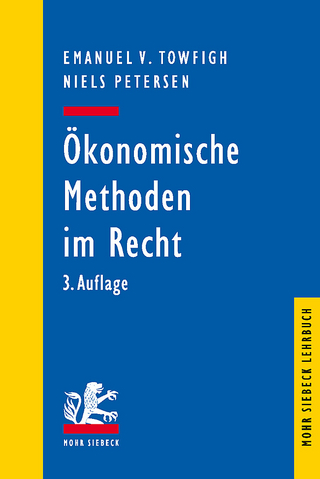
Power, Knowledge and Feminist Scholarship
An Ethnography of Academia
Seiten
2017
Routledge (Verlag)
978-1-138-91149-9 (ISBN)
Routledge (Verlag)
978-1-138-91149-9 (ISBN)
How do academics decide what counts as "proper" knowledge, worthy of being read, cited, funded? And is feminist scholarship recognised as such? These questions drive this groundbreaking book, which offers an ethnography of academia.
Feminist scholarship is sometimes dismissed as not quite ‘proper’ knowledge – it’s too political or subjective, many argue. But what are the boundaries of ‘proper’ knowledge? Who defines them, and how are they changing? How do feminists negotiate them? And how does this boundary-work affect women’s and gender studies, and its scholars’ and students’ lives?
These are the questions tackled by this ground-breaking ethnography of academia inspired by feminist epistemology, Foucault, and science and technology studies. Drawing on data collected over a decade in Portugal and the UK, US and Scandinavia, this title explores different spaces of academic work and sociability, considering both official discourse and ‘corridor talk’. It links epistemic negotiations to the shifting political economy of academic labour, and situates the smallest (but fiercest) departmental negotiations within global relations of unequal academic exchange. Through these links, this timely volume also raises urgent questions about the current state and status of gender studies and the mood of contemporary academia. Indeed, its sobering, yet uplifting, discussion of that mood offers fresh insight into what it means to produce feminist work within neoliberal cultures of academic performativity, demanding increasing productivity.
As the first book to analyse how academics talk (publicly or in off-the-record humour) about feminist scholarship, Power, Knowledge and Feminist Scholarship is essential reading for scholars and students in gender studies, LGBTQ studies, post-colonial studies, STS, sociology and education.
Winner of the FWSA 2018 Book Prize competition
The Open Access version of this book, available at https://doi.org/10.4324/9781315692623, has been made available under a Creative Commons Attribution-Non Commercial-No Derivatives 4.0 license.
Feminist scholarship is sometimes dismissed as not quite ‘proper’ knowledge – it’s too political or subjective, many argue. But what are the boundaries of ‘proper’ knowledge? Who defines them, and how are they changing? How do feminists negotiate them? And how does this boundary-work affect women’s and gender studies, and its scholars’ and students’ lives?
These are the questions tackled by this ground-breaking ethnography of academia inspired by feminist epistemology, Foucault, and science and technology studies. Drawing on data collected over a decade in Portugal and the UK, US and Scandinavia, this title explores different spaces of academic work and sociability, considering both official discourse and ‘corridor talk’. It links epistemic negotiations to the shifting political economy of academic labour, and situates the smallest (but fiercest) departmental negotiations within global relations of unequal academic exchange. Through these links, this timely volume also raises urgent questions about the current state and status of gender studies and the mood of contemporary academia. Indeed, its sobering, yet uplifting, discussion of that mood offers fresh insight into what it means to produce feminist work within neoliberal cultures of academic performativity, demanding increasing productivity.
As the first book to analyse how academics talk (publicly or in off-the-record humour) about feminist scholarship, Power, Knowledge and Feminist Scholarship is essential reading for scholars and students in gender studies, LGBTQ studies, post-colonial studies, STS, sociology and education.
Winner of the FWSA 2018 Book Prize competition
The Open Access version of this book, available at https://doi.org/10.4324/9781315692623, has been made available under a Creative Commons Attribution-Non Commercial-No Derivatives 4.0 license.
Maria do Mar Pereira is Assistant Professor in Sociology at the University of Warwick (UK) and Deputy Director of Warwick’s Centre for the Study of Women and Gender.
1. An Outsider Within? The Position and Status of WGFS in Academia 2. Pushing and Pulling the Boundaries of Knowledge: a Theory of Epistemic Status 3. Of Serious Public Speeches and Humorous Corridor Talk: The Status of WGFS in Times of Academic Change 4. "WGFS is Proper Knowledge, But…": Discourses of Dismissive Recognition of Feminist Scholarship 5. Putting WGFS on the Map(s): The Epistemic Boundary-Work of WGFS Scholars 6. Catching up with the (Anglo-American) Future: Feminist Scholarship and the Epistemic Status of Nations 7. Towards More Reflexive Feminist Boundary-Work
| Erscheinungsdatum | 24.05.2016 |
|---|---|
| Reihe/Serie | Transformations |
| Zusatzinfo | 2 Halftones, black and white; 2 Illustrations, black and white |
| Verlagsort | London |
| Sprache | englisch |
| Maße | 156 x 234 mm |
| Gewicht | 453 g |
| Themenwelt | Sozialwissenschaften ► Pädagogik ► Erwachsenenbildung |
| Sozialwissenschaften ► Politik / Verwaltung ► Politische Theorie | |
| Sozialwissenschaften ► Soziologie ► Allgemeine Soziologie | |
| Sozialwissenschaften ► Soziologie ► Gender Studies | |
| ISBN-10 | 1-138-91149-6 / 1138911496 |
| ISBN-13 | 978-1-138-91149-9 / 9781138911499 |
| Zustand | Neuware |
| Informationen gemäß Produktsicherheitsverordnung (GPSR) | |
| Haben Sie eine Frage zum Produkt? |
Mehr entdecken
aus dem Bereich
aus dem Bereich
Lernende in ihrem Lernprozess wirksam begleiten und unterstützen. Ein …
Buch | Softcover (2024)
WBV Media (Verlag)
20,00 €
Prüfungsaufgaben - Rechnungswesen, Wirtschaft, Recht, Steuern
Buch | Softcover (2023)
Europa-Lehrmittel (Verlag)
26,90 €
eine Einführung für Juristen
Buch | Softcover (2023)
Mohr Siebeck (Verlag)
29,00 €


